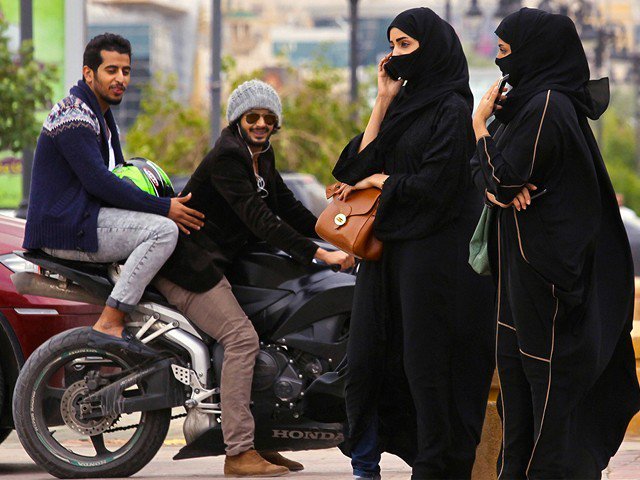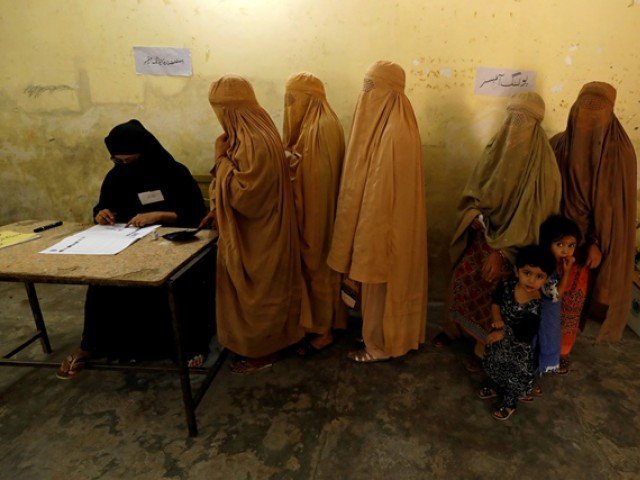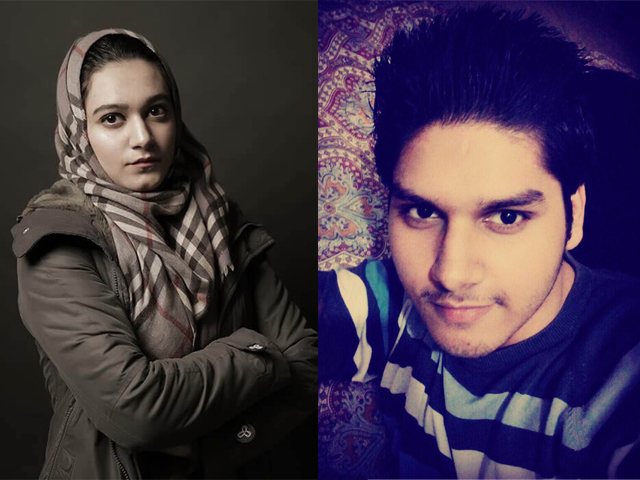
Mukhtaran Mai verdict: Where the court went wrong
The decision protects the rights of the accused and perpetuates the status quo of spinelessness.
Human rights activists are rightfully outraged that the Supreme Court (SC) has upheld the acquittals of five of the accused in Muktar Mai’s case, except Abdul Khaliq. (The State v. Abdul Khaliq, Criminal Appeals No.163 to 171 and S.M. Case No.5/2005, hereinafter “Judgment”)
The case offers an opportunity to reignite the struggle and frame ethical principles that balance the right of the criminal defendant with the rights of victims of crimes.
On August 31, 2002, the Anti-terrorism Court (ATC) found the six defendants guilty of several offences under the Hudood Ordinance and the Pakistan Penal Code. These included rape and aiding and abetting a rape. They were sentenced to imprisonment for life, a fine, six months rigorous imprisonment, given the death penalty and 30 stripes - the last two were subject to confirmation by the high court.
The Multan branch of the Lahore High Court on March 3, 2005 accepted their appeals, except that of Abdul Khaliq.
There were eight other defendants who had participated in the panchayat that ordered revenge on Mukhtaran Mai, and were charged for unlawful assembly. All eight were acquitted by the ATC.
The criminal justice system must balance the victims’ rights with those of criminal defendants, who have a right to a fair trial, the right to competent counsel, the right to exhaust appeals, the right to cross examine the prosecution’s witnesses and be presumed innocent.
In this case the clincher for the SC was that unless there are grave and glaring errors of law and fact, a court will not disturb an acquittal even if a different conclusion could possibly be arrived on the evidence. In principle this is a good stance. A defendant who has been subjected to the state’s gruelling apparatus - police, detention, prosecution - and is then acquitted, is on moral high ground. Justice Saqib Nisar calls this acquittal a doubling of the presumption of innocence (Judgment 30).
Sadly, though it isn’t about reasonable minds differing on the interpretation of the facts. It isn’t even a technical acquittal as the court of first instance, the ATC, found them guilty. An appellate court allowed their appeals. The Lahore High Court’s (LHC) “acquittal” was, as Aitzaz Ahsan (counsel for the complainant Mukhtaran Mai) argued, a misappraisal of evidence, speculative, arbitrary, and based on inadmissible evidence (Under the Pakistan: Code of Criminal Procedure 1898, signed statements to the police may not be used to impeach a witness. S. 162. However, this apparently contradicts with the Qanoon-i-Shahadat, Sections 140 and 153).
Had the SC restored their convictions, they would be on solid legal ground. But they chose not to – a choice that was political and calculated and that comes as a blow to the rights of the victims of sexual violence. In a country where rape is under reported and under prosecuted, Mukhtaran Mai endured shame and stigma, and valiantly sustained in her struggle to secure justice against rapists who were members of a socially more powerful group, the Mastois.
The SC decision, thus, seems a morally vacuous and cynical attempt to hide behind one moral principle (the rights of the accused) – while they perpetuate the status quo and allow the powerful to go unpunished.
Why I disagree with the decision of the Supreme Court
1. Doubting the role of Abdul Razzak, the imam who helped file the complaint
Justice Saqib Nisar’s decision is full of parochial opinions that have been passed as truisms. These alone should be grounds for review of his decision.
His primary rationale in allowing the appeal and doubting the evidence is based on how he feels Abdul Razzak, an Imam, masterminded the case and coerced Mukhtaran’s family to lodge a complaint. It is implied that the Imam had a bone to pick with one of the accused (Judgment 30). This premise is refuted logically by the dissenting judge, Justice Nasirul Mulk who states that he was an Imam and:
“the Gujjars (Mukhtaran Mai’s tribe) were of a lower social status and… needed the intervention and support of men of some influence…” (Judgment (Dissent) 69).
This inferences made by a SC Judge (Nisar) seem misplaced – given that he probably was not present at the trial to evaluate the witnesses and hear the testimonies firsthand.
2. Finding that the victim complained because she could not marry the rapist
On at least two occasions, Justice Saqib Nisar expresses his suspicion that Mukhtaran Mai lodged a First Investigation Report (FIR) against the eight acquitted by the ATC on grounds that they participated in an unlawful assembly because she was slighted that the marriage arrangement whereby she would marry the rapist (Abdul Khaliq) and her brother Shakoor would marry his sister, Salma (Nasim), fell through.
He says that when Khalil married Salma on June 26th, 2002, she knew that the watta satta had failed and this annoyed her (Judgment 23). He speculates that this was their motive in filing complaints against Khalil and several members of his family as their role in the panchayat was marginal.
“[It is] rather conspicuously strange, that whole family of Khalil has been roped into the matter. It seems that on account of this marriage the possibility of (watta satta) marriage extinguished and the complainant felt betrayed and deceived.” (P37)
To speculate that a rape victim has a desire to be married to her rapist and likening her to a scorned woman who has been rejected by an eligible groom is profoundly problematic. In fact, the more reasonable conclusion would be whatever settlement the Gujjjars may have been agreeing to was out of fear of violence from the other side, rather than an interest in marriage proposals.
3. Not believing Shakoor was raped
It appears Justice Nisar also never believed Shakoor, Mukhtaran Mai’s brother, was raped by Salma’s brother and two accomplices. The judge speculated on the prosecution’s claim that after Shakoor refused to promise that he would not tell anyone about his own rape, he was detained in the rapists’ house where Salma (his supposed paramour) also resided; he said this was “incomprehensible.” That would be:
“Endangering and putting at stake, the virtue, the sanctity and respect of a young unmarried sister. This is absolutely not done or conceivable in our rural society, where people are very sensitive about the chastity of their womenfolk, especially young and virgin.” (Judgment 25)
At no point does he assess that this is a young boy who has just been raped, kidnapped, and falsely detained – a victim of a series of violent crimes. Instead the judge sees him as an aggressor and a threat to a girl’s chastity. Also, implicit in this statement is an acceptance, in line with patriarchal values that threats to a girl’s chastity (which could mean perhaps verbal contact with an outsider) are of paramount concern.
Justice Nisar is inserting his own concept of what is important in rural society. And to use this opinion to find Shakoor’s detention episode incredible – renders his decision unreliable and arbitrary.
The judge also finds it unbelievable that Shakoor would not report his rape out of shame. This opinion is incompatible with current knowledge on the matter, and courts should elicit expert psychiatric testimony on this issue upon review of this SC decision. Rape victims deal with trauma in different ways. And Justice Nisar’s comments perpetuate the myth that male rape victims do not suffer as much as females, especially not young and chaste females, whose marriage may be at stake.
“It is strange that when Maulvi Abdul Razzak… along with the police arrived and rescued the boy, he did not apprise them that he is not the culprit, rather is a victim of sodomy; the explanation of the prosecution that it was due to shame that he refrained from the disclosure, does not go with the earlier prosecution’s version, when he had refused not to declare being sodomised and was thus confined with Salma. It is unbelievable that the boy for ‘shame’ would not tell the true story, lose the chance of liberty… Strangely even in the police station did not reveal his sodomy to anyone.” (Judgment 26)
Again it is speculative to assume that all people would readily report they were raped if it would secure their release. This is a highly subjective matter and a lot would depend on the victim’s age, social status, the physical and mental pain they may be suffering, and the relative social standing of the perpetrators.
4. They didn’t rape her when she came to rescue her brother
Justice Nisar casts further doubt on the prosecution’s case by saying that when the alleged rapists had the chance to rape her when she went to inquire about her brother, they didn’t.
“If the intention of the Mastois was to take badla…. Mukhtaran Mai etcetera had gone to the house of Khaliq, without the company and protection of their men folk; this was a good opportunity for Khaliq or for that matter any other male of the family to settle the score, but no harm was caused to anyone.” (Judgment 25-26)
This boils down to the following- if a person is a rapist, they would just take the first opportunity to rape the victim. It trivializes how rape is used to assert power and control – and is not about lust that any chance the rapist gets he would use it. The opinion is unfounded and unsupported by current knowledge on rape as a crime of power and violence.
Courts are permitted to set aside acquittals if these are based on arbitrary and speculative findings.
5. They didn’t file the FIR right away and this shows they are lying
Counsel for Mukhtaran, Mr Aitzaz Ahsan, argued that there was a good reason for the delay in filing the FIR and negative inferences cannot be drawn against the prosecution on this account. However, Justice Saqib Nisar stated:
“The delay in each case has to be explained in a plausible manner and should be assessed by the court on its own merits; in a case of an unmarried virgin victim of a young age, whose future may get stigmatised, if such a disclosure is made, time is taken by the family to ponder over the matter that situation cannot be held at par with a grownup lady, who is a divorcee for the last many years; the element of delaying the matter to avoid badnami may also be not relevant in this case because the incident according to the prosecution’s own stance was known to a large number of people and there was no point in keeping it a secret from everyone.” (Judgment 36-37)
It is shocking to suggest that an older, divorced woman would hesitate less in reporting that she has been raped because presumably she has little to lose. The dissenting opinion seems more reasoned and states
“Delay in rape cases is a universal phenomenon and can be brushed aside…” (Judgment (Dissent) 62)
He further says that in fact, given the social disparities between the Mastois and the victim’s family, such delay was completely understandable. They were under fear of reprisal.
“A victim is deterred by the embarrassment and humiliation she would have to suffer in narrating the incident to strangers, more so, to the police recording the FIR, followed by probes during investigation into matters personal to her...”
6. Doubting her testimony on her state of undress after the incident
The other obviously outrageous discussion in the judgment is about her state of undress and the constant use of the term “nudity” rather than the more neutral, culturally sensitive, less sensational term “state of undress” or “partial undress.” The court cites to the inconsistency in her statements as to whether her shalwar was given to her in the room or thrown at her – without any contemplation on the context - that this is someone who has just been a victim of the most heinous crime – a gang rape.
“About the nudity aspect and the clothes and how allegedly those were thrown, the learned high court has pointed out the inconsistencies in the statements of the witnesses and has again arrived at a factual conclusion, which to our mind does not suffer from any factual or legal vice.” (Judgment 35)
7. Court finds she was not injured and there is no corroboration
The court also found that this case cannot be built on her testimony alone without corroboration and DNA tests even though Counsel for Mukhtaran gave ample legal support for how a victim’s testimony alone is sufficient for a rape conviction. It was found that medical evidence “in the required quality” is missing.
“The absence of injures and marks on the body of a prosecutrix should not be the only factor to disbelieve her version in an ordinary rape case, but where a woman has been forcibly raped for full one hour, by four young individuals on the bare floor, it is not expected that she would not struggle and in the course would sustain no marks or injury.” (Judgment 42)
In fact the dissenting judge, Justice Nasir-ul-Mulk, states quite the opposite:
“When medically examined eight days after the incident, the doctor found healed bruises on the complainant’s buttocks and back. The locale of the bruises indicates physical struggle by the complainant and there healed condition coincide roughly with the timing of the incident.” (Judgment (Dissent) 71)
Regardless, a rape case can be proved beyond a reasonable doubt based on testimony alone. Here there was Mukhtar’s testimony, corroborated by medical evidence, and witnesses. What more do you need?
8. The Catch 22: Ensuring convictions, opposing degrading punishments
Dubiously, this case was tried in the Anti-terrorism court that offers speedy trials and not “fair” ones. In about two months, the court had tried and convicted six of the defendants. On appeal before the SC, both sides did not contest the jurisdiction of the ATC and it was thus a non issue even for the SC despite the fact that there were questions about whether the incident created “terror” as defined by the law.
Reminiscent of the infamous Diplock courts in the UK, set up to try certain scheduled offences (namely of the IRA) without the safeguards of the jury system, these ATCs are suspect. According to the Human Rights Commission of Pakistan (HRCP), ATCs are also more prone to giving death sentences.
It may not be too late to demand a new trial in a civil court! It may have secured an easy conviction – but perhaps ruined the case on appeal.
Human rights activists have also been ambivalent when it comes to the death penalty. HRCP has published a report on the death penalty in Pakistan that claims that the death penalty in Pakistan is applied unfairly and indiscriminately and there are gross miscarriages of justice (“Slow March to the Gallows.”) Regardless of the heinousness of the crime, practically no criminal justice system can ever ensure that the death penalty will be applied uniformly and consistently in all cases. Its application is necessarily prejudicial to people of low socio-economic backgrounds.
Given that we are amongst the worst violators when it comes to administration of the death penalty, it is ironic that Justice Saqib Nisar would quote a Chinese saying glibly that it “is better that a thousand guilty men go free than one innocent man be executed” in order to acquit Mukhtar’s violators. (Judgment 22)
As activists and human rights lawyers, we are in a catch-22 – pushing for a rape conviction when inevitably under the Hudood Ordinance, it would carry a death sentence. Many common law countries carry a maximum life sentence for such crimes, and sentences between two years to life should be sufficient. Also, hard labour in jail and corporal punishment may seem just in a superficial and dramatic kind of way, but these are inconsistent with a society trying to align itself with principles of human rights.
Allowing the appeals of five of the rapists in such a high profile and uncontroverted rape case does not bode well for the future of criminal justice administration in Pakistan and thoroughly delegitimises the higher judiciary. As concerned citizens, we should all be very worried – and should demand a reversal of this decision based on legitimate legal arguments – and balancing victims’ needs with those of defendants.




COMMENTS (23)
Excellent breakdown of the case. Thanks.
Comments are moderated and generally will be posted if they are on-topic and not abusive.
For more information, please see our Comments FAQ